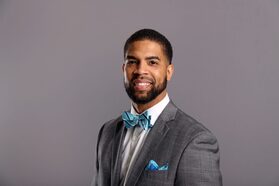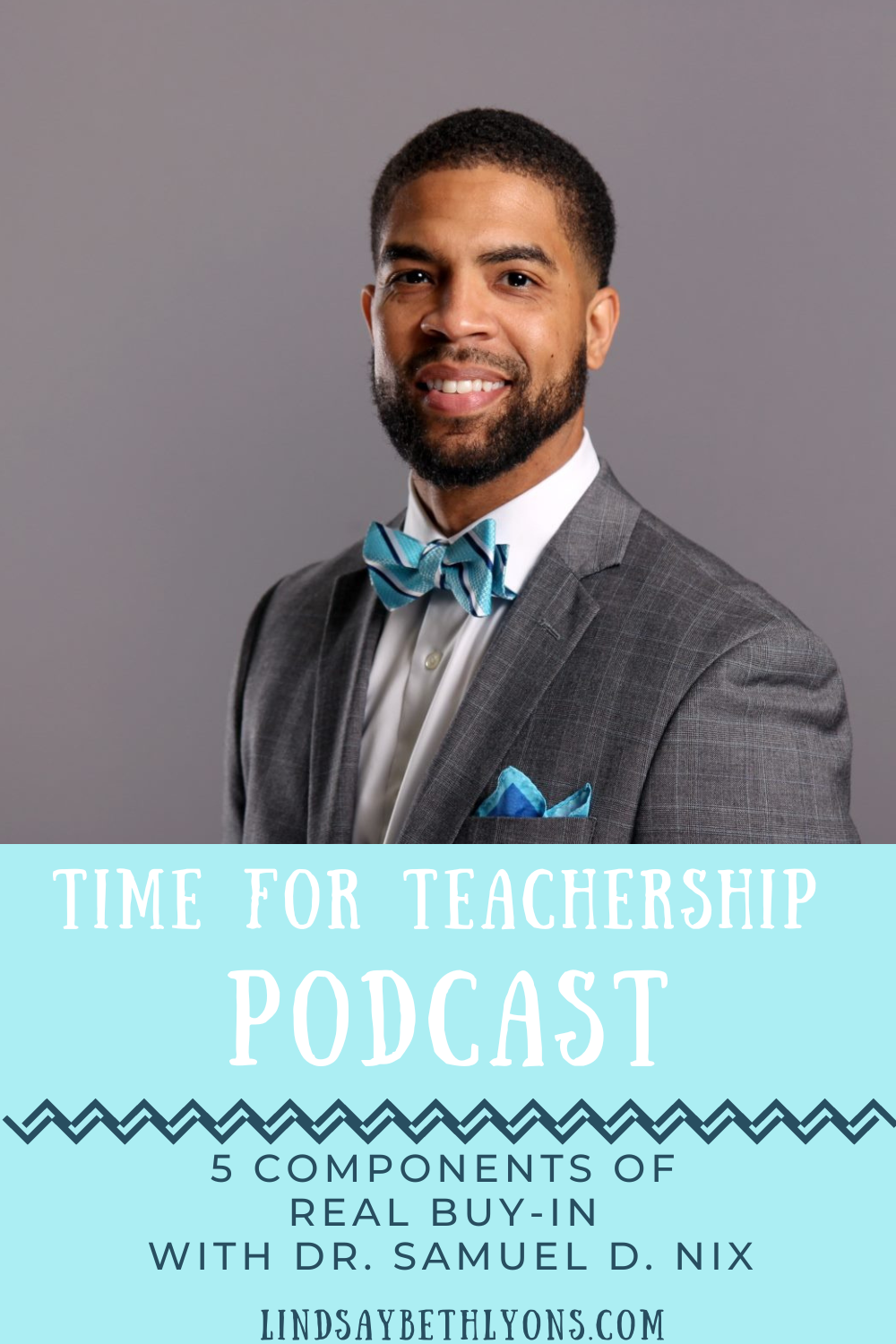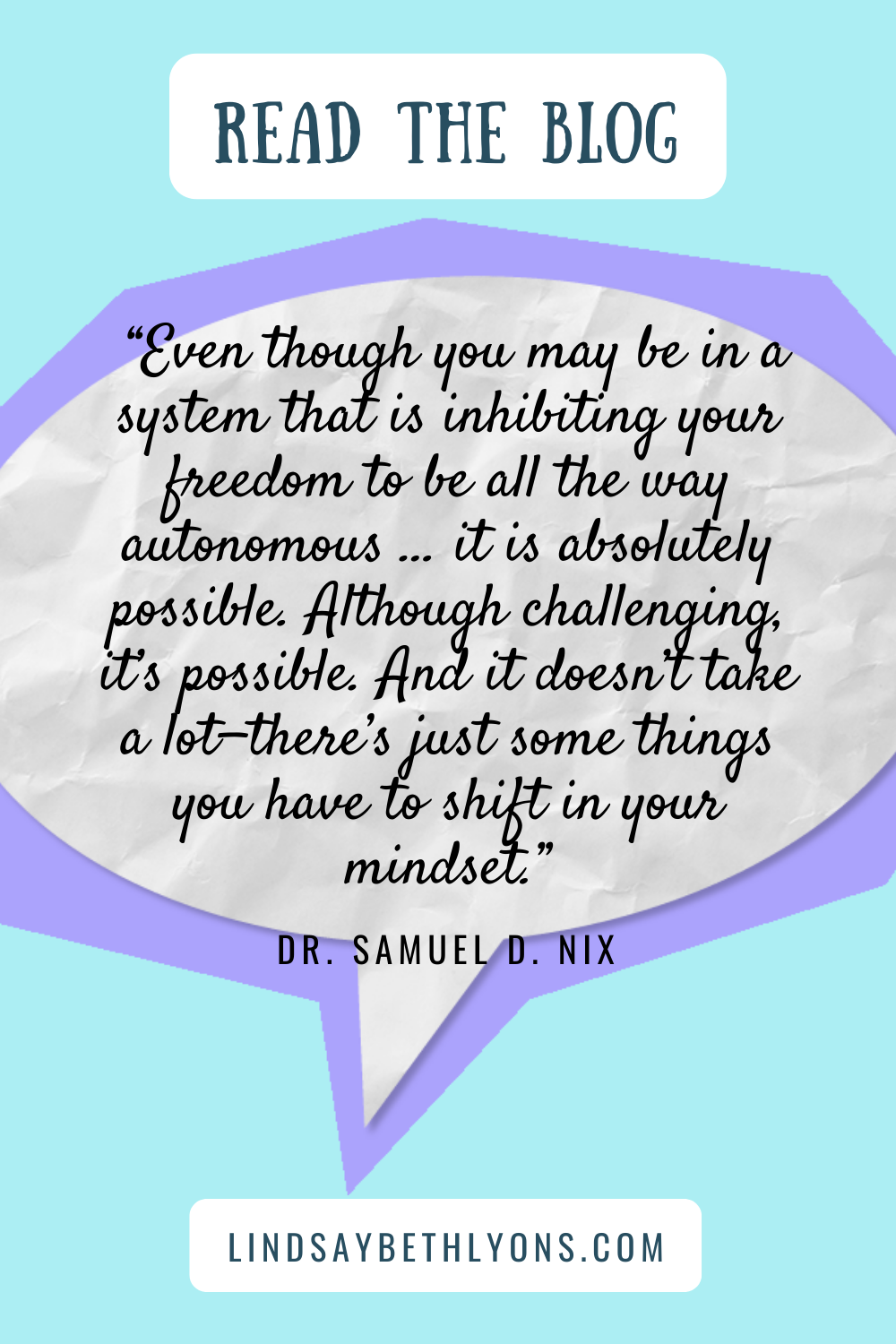
Listen to the episode by clicking the link to your preferred podcast platform below:
We hear the term “buy in” all the time, especially in the field of education. We want people to be on the same page about proposed changes or new ideas. But are people really buying in? Or are they just complying because they have to? We talk about how to initiate and sustain true change on episode 89 of the Time for Teachership podcast. Dr. Samuel D. Nix shares his wisdom with us for how to take steps towards significant, impactful change and progress. He highlights the importance of making a mindset shift and allowing that shift to impact your actions. Here are some of the takeaways from our conversation. Acknowledging Unconscious Biases When asked what his dream for the field of education is, Dr. Nix said it was that there would be no more equity gap or learning gap. That every student would enjoy their education, benefit from it, and have the same opportunities as their peers. But before this dream can be realized, we need to start recognizing and dismantling our unconscious biases. Dr. Nix does an exercise with educators where they look at photos of a diverse set of students. Then, based on their ethnicity, gender, clothing, etc., educators will give them a grade from A to F, based on what they think they’d have. Then comes the question: why? Why are certain grades assigned to certain students? Dr. Nix goes on to say that these are all A-level students. So why do we think otherwise? It comes down to those unconscious biases each and every one of us have. Recognizing we have those biases is the first step to any real change and is the over-arching mindset shift that most educators need. Steps to Initiate Change Besides this understanding of unconscious biases, Dr. Nix identified five steps to get true buy-in from others—five steps to initiate true change. They are as follows:
Change doesn’t come over night—we know this. It’s an ongoing process that requires openness, vulnerability, and persistence. It also requires the ability to look inward and reflect on where you are. Dr. Nix’s one next action step for all educators is to stop and think: are your actions having the impact they have the potential to have? Start with yourself and start with reflection. We covered so much more in this conversation with Dr. Samuel D. Nix! Have a listen to the whole thing on episode 89 of the Time for Teachership podcast. You can also connect with Dr. Nix at his website, www.snix3consulting.com, or over on twitter: @samuelnix. Quotes:
0 Comments
Leave a Reply. |
Details
For transcripts of episodes (and the option to search for terms in transcripts), click here!
Time for Teachership is now a proud member of the...AuthorLindsay Lyons (she/her) is an educational justice coach who works with teachers and school leaders to inspire educational innovation for racial and gender justice, design curricula grounded in student voice, and build capacity for shared leadership. Lindsay taught in NYC public schools, holds a PhD in Leadership and Change, and is the founder of the educational blog and podcast, Time for Teachership. Archives
May 2024
Categories |




 RSS Feed
RSS Feed